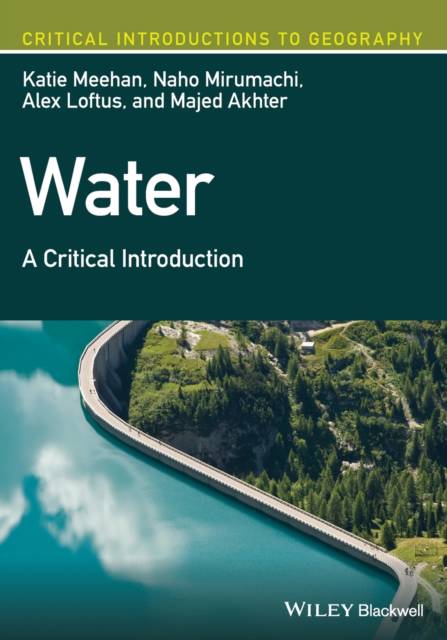
- Afhalen na 1 uur in een winkel met voorraad
- Gratis thuislevering in België vanaf € 30
- Ruim aanbod met 7 miljoen producten
- Afhalen na 1 uur in een winkel met voorraad
- Gratis thuislevering in België vanaf € 30
- Ruim aanbod met 7 miljoen producten
Omschrijving
Discover the hydrosocial cycle and the impact of power, knowledge, and scarcity on water rights and use through this engaging and student-friendly textbook
In Water: A Critical Introduction, a team of distinguished researchers delivers an expert examination of our most pressing water-related challenges, arguing that flows of water are shaped by social practices and geometries of power. Combining first-hand research and headline case studies, the authors reveal the hydrosocial relations often hidden in mainstream accounts of water, delving into current issues like water scarcity, floods, global water governance, legal conflicts, human rights, potable water provision, health, the water-food-energy nexus, and much more.
Spanning five centuries, this comprehensive volume reflects on how imperial expansion has shaped hydrosocial relations in and between Europe, Asia, Africa, and the Americas, how water demand has changed over time, and how this change impacted lifestyle.
As the first major text to synthesize critical water research in both local and global perspectives, this book is anchored by clear and compelling arguments -- the "four planks" -- and supported by the authors' original research and up-to-date synthesis of the latest critical research on major water problems. It also includes maps, illustrations, and additional learning materials to be used by educators. Readers will find:
- A lively and thorough introduction that explains why a critical approach is necessary to fully understand our current water challenges, with a focus on the "skeptical superhero"
- A global approach to key debates in water issues, including large dams, privatization, transboundary conflicts, agriculture and irrigation, water and sanitation provision, human rights, governance dilemmas, and the Sustainable Development Goals
- Comprehensive explorations of the roles played by expert knowledge, global capital, climate change, and justice struggles in the hydrosocial cycle
- Critical theoretical perspectives that integrate environmental social sciences, feminist critique, and a broadly defined political economy with the specificities of water resources
- Fulsome treatments of water governance, science, and management, including the origins and implications of neoliberal approaches to the privatization, commodification, and financialization of water
- An accessible text that "invites the reader" on a critical journey
Water: A Critical Introduction is a key text for advanced high school, undergraduate, and graduate students who want a keener understanding of trends in environmental management, political ecology, and water governance, science, and engineering. Written with an interdisciplinary audience in mind, this book will benefit students taking courses in environmental studies, environmental law, geopolitics, international studies, human geography, hydrology, engineering, environmental economics, and related disciplines.
Specificaties
Betrokkenen
- Auteur(s):
- Uitgeverij:
Inhoud
- Aantal bladzijden:
- 304
- Taal:
- Engels
- Reeks:
Eigenschappen
- Productcode (EAN):
- 9781119315216
- Verschijningsdatum:
- 13/02/2023
- Uitvoering:
- Paperback
- Formaat:
- Trade paperback (VS)
- Afmetingen:
- 178 mm x 254 mm
- Gewicht:
- 521 g

Alleen bij Standaard Boekhandel
Beoordelingen
We publiceren alleen reviews die voldoen aan de voorwaarden voor reviews. Bekijk onze voorwaarden voor reviews.











